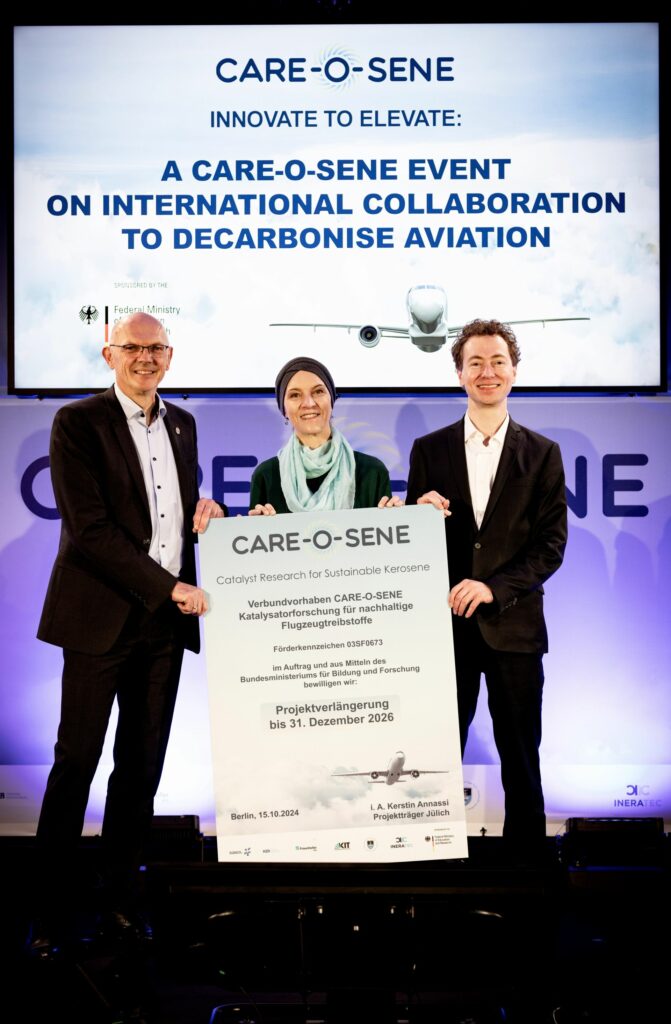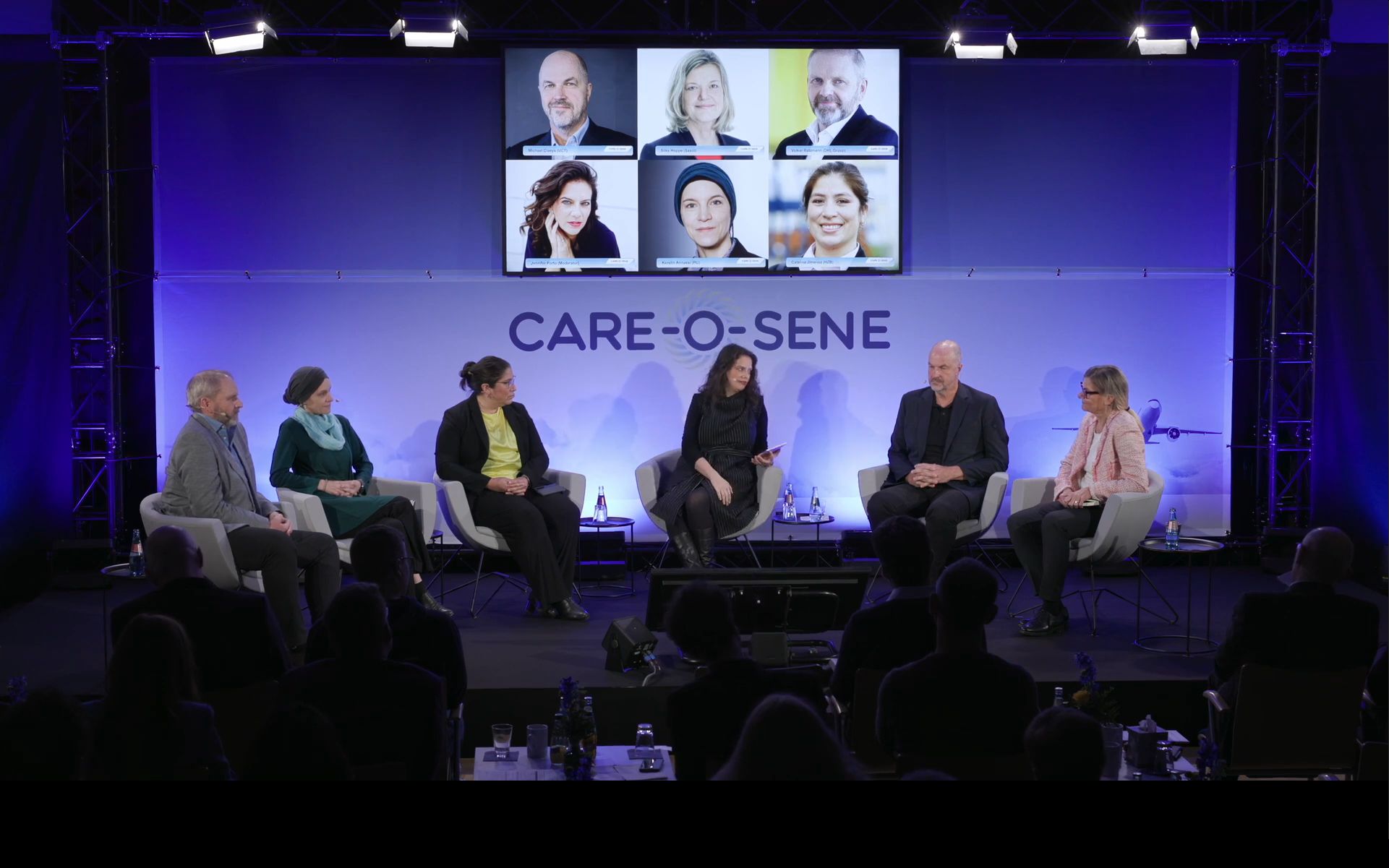Federal Ministry of Research, Technology and Space (BMFTR) supports CARE-O-SENE project until end of 2026
Hamburg/Berlin, 12. November 2024 – Das deutsch-südafrikanische CARE-O-SENE-Konsortium, das effiziente Katalysatoren für die Produktion von Sustainable Aviation Fuel (SAF) auf Power-to-Liquid (PtL)-Basis entwickelt, erhält eine Förderverlängerung des Bundesministeriums für Forschung, Technologie und Raumfahrt (BMFTR) bis Ende 2026.
Dr Dirk Schär, co-project manager and Lead Technical Sales Catalyst at Sasol, explains: 'Thanks to the extension from the BMFTR, we can intensify our research into regeneration of catalysts. This is an important step for the long-term economic viability and sustainability of the PtL process.’
Research focus: long-lasting catalysts, integrated demonstration and new technologies
In the new CARE-O-SENE project phase, the team focuses on further optimising developed Fischer-Tropsch (FT) catalysts and increasing their lifespan. This means that the catalysts will need to be replaced less often, the materials they contain can be used more effectively and the FT process will become more sustainable and economical.
Although catalysts are not consumed by definition, in practice they tend to degrade and thus lose activity over time and become less effective. The CARE-O-SENE project is therefore working intensively to improve the ways these catalysts can be restored, increasing their lifespan and, hence, materials circularity. The project team has already reached the most important milestone: the development of a efficient catalyst with a kerosene yield of over 80 per cent.
The recently developed FT catalyst will also be used in a new integrated system that has been developed by the Fraunhofer Institute for Ceramic Technologies and Systems (IKTS) which will be able to utilise renewable electricity and sustainable feedstocks into FT synthetic crude product that can be upgraded to SAF. This will not only allow for the demonstration of the entire value chain, but also studies into the impacts of varying feedstock and the fluctuation in renewable power availability on the process.
Another focus of the current project phase is further research into thin-film catalysts. ‘This technology will enable a new generation of Fischer-Tropsch reactors and thus further improve the flexibility of sustainable aviation fuel production,’ erklärt Dr. Tobias Sontheimer, Co-Leiter des Projekts und Head of Strategy Department for Energy and Information am Helmholtz-Zentrum Berlin (HZB)und
Achieving the goal through global partnerships
At the CARE-O-SENE 'Innovate to Elevate' event on 15 October, Kerstin Annassi, Head of Department Energy Systems at Projektträger Jülich, handed over the funding extension on behalf of the BMFTR at the HZB premises in Berlin. She emphasised the importance of international cooperation and close collaboration between research and industry: ‘Only by pooling expertise and resources – across national borders and between research institutes and industry – can we make the progress that is so urgently needed to accelerate the transformation of the aviation industry.’ More information about the event and the full recording can be found here.
The consortium, consisting of the Fraunhofer Institute for Ceramic Technologies and Systems (IKTS), the Helmholtz-Zentrum Berlin (HZB), INERATEC, the Karlsruhe Institute of Technology (KIT), the University of Cape Town (UCT) and Sasol, can thus continue to make an important contribution to the decarbonisation of aviation.
-End-
Press contact:
Torsten Titze, Communications Manager, Sasol
Mobil: +49 173 66 800 90
Torsten.Titze@de.sasol.com


